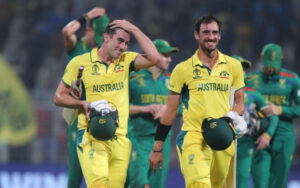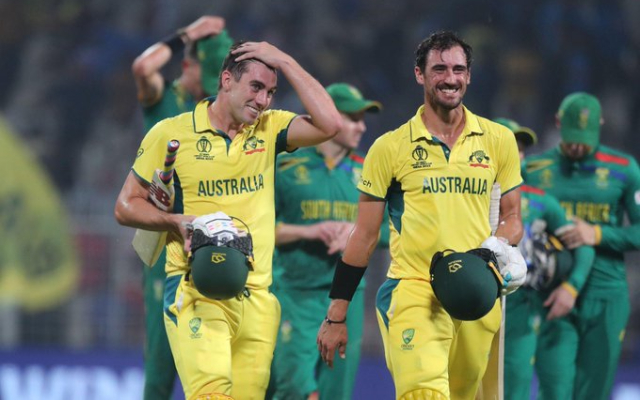
Craig Marais
I’ve experienced such disappointment with the Proteas in the past – including covering the 2007 World Cup in the Caribbean and the 2015 World Cup in Australia and New Zealand that I have no expectations when it comes to South Africa at World Cups.
They did really well in this competition, finishing second in the league phase. Rob Walter and his coaching staff must be congratulated for that, given that this was their first experience of the big stage. But the truth is, I expected the Proteas to lose Thursday’s semi-final. They did, as they normally do. More than 30 years after readmission, South Africa have still not made it to a World Cup Final.
They are the complete opposite of rugby union’s Springboks when It comes to knockout cricket play. In October, the South African rugby team won an unprecedented fourth World Cup after beating France, England and New Zealand in back-to-back matches – each by a single point. You’d be hard-pressed to find a better illustration of mental toughness.
Surely, those involved with South African cricket can see that something is wrong? Surely, we can do better? Is it that hard to learn from our mistakes, evolve and start winning World Cups? Just getting to a final would be a start. Or are we content to be a bunch of losers who make excuses and are happy to be labelled world cricket’s chokers?
Is South African cricket open, honest and authentic enough to sort out the problems and come up with solutions? I don’t think so, and fans should be prepared for more heartache in the future. Love or hate Australia – and most South Africans know where they stand on that! – they know how to win World Cups, five and counting.
Their domestic system is strong and competitive, producing not only talented cricketers but ones who are mentally strong enough to produce it on the big stage when it really counts. Our system is diluted by too many franchises and too many cricketers – many journeymen who are never going to play for South Africa.
Transformation was necessary, and still is, but when, if ever, are we going to be able to just choose our best team? No BS, no political agendas, just choose our best team like the Springboks do. Instead, we’ll play Kagiso Rabada, Lungi Ngidi and Temba Bavuma into the ground.
Rabada, who made his debut nine years ago, has bowled 17,465 balls in international cricket. Josh Hazlewood, so lethal with the new ball in the semi-final, has been around nearly half a decade longer and has bowled 18,656 deliveries. If we’re not careful, we’ll succeed in making carthorses out of thoroughbreds.
The fans aren’t stupid and can see what’s happening. That’s especially true at domestic level. We choose via numbers – there must be three blacks Africans and no more than five white cricketers. For the poor coaches, selection is a constant trapeze act. If a black player gets sick, you have to answer as to why only two took the field.
What about players like Reeza Hendricks, who no matter how well they perform at World Cups can’t get a game or opportunities? Coloured cricketers weren’t white enough in the bad old days. Now, they not black enough. How sad is that? Double-whammy discrimination. I hope the Proteas win a World Cup in my lifetime.
They desperately need a Rassie Erasmus, who coached the Boks to World Cup glory in 2019 and was team directed when they retained the trophy last month. Someone like Erasmus who has the breadth of vision, honesty and authenticity to bring out genuine change. Otherwise, we’ll be telling the same old story another 30 years from now. South African cricket does the same things over and over, and yet hopes for a different result.
Like other sporting organisations, Cricket South Africa (CSA) have to answer to the government and, by extension, the African National Congress (ANC). That hasn’t been a happy marriage. South African rugby too was in utter disarray not so long ago, until Erasmus came back and got involved. We can only hope that cricket stumbles upon someone similar.
Craig Marais is a former professional cricketer, broadcaster and sports reporter based in Cape Town. He covered multiple cricket and rugby World Cups over the course of two decades.




